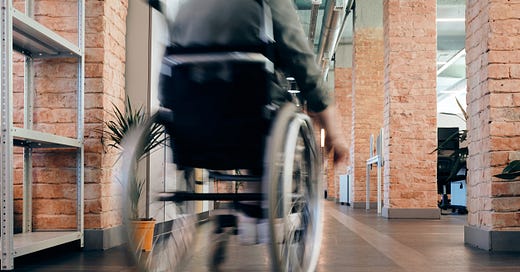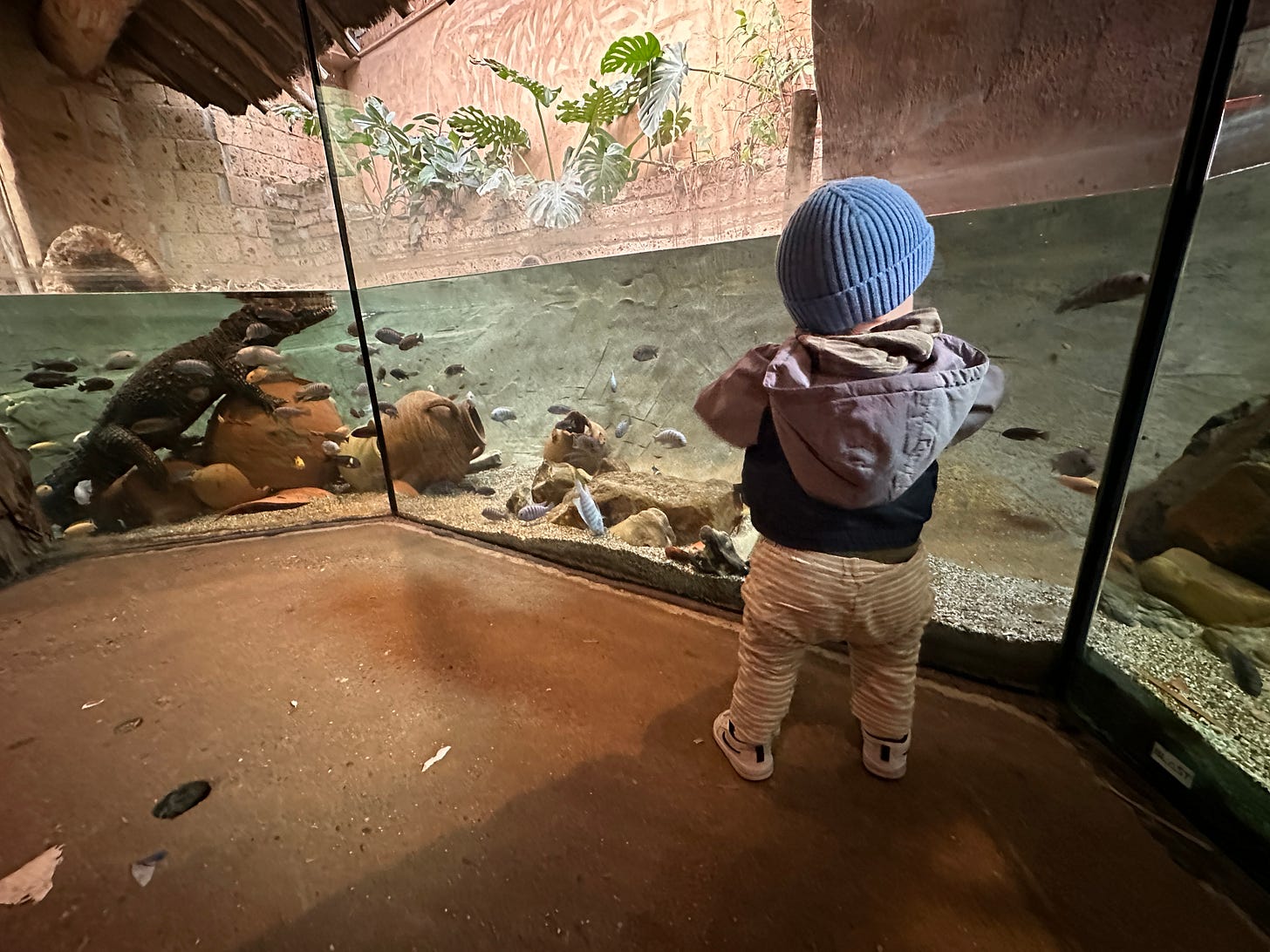The Autonomous Wheelchair as the Future of Healthcare?
Healthcare technology, dementia, ChatGPT and human contact
Hey there,
What does the future of healthcare look like? Are we going to make even more use of smart sensors, robots and autonomous things, such as a self-propelled wheelchair?
Every month I write a future scenario to amaze, inspire, frighten and above all make you think about the ever-increasing role of technology in our lives.
In this month's scenario, I explore the future of healthcare technology.
Enjoy reading!
Peter
Scenario: Fired Up Autonomous Wheelchair
Mario drives quietly through the nursing home. Like all other residents, he has dementia. Fortunately, it has not progressed that far yet. He feels good, although he sometimes has phases when he gets worse. Lately, these phases follow each other more quickly and last longer.
He's already accepted it. Ten years ago he had to say goodbye to his wife. In the beginning it was still possible to live alone, but after this loss it became harder. They wanted children, but didn’t succeed.
Mario hardly gets any visitors. His sister Maria, really, comes every two weeks and her daughter Carmen, his cousin, once a month. They talk and drink a cup of coffee. With five bags of sugar for Mario. It's like the disease has affected his taste buds too, especially when it comes to sweets.
"Oh, I don't have to do it anymore for health reasons," he says with a laugh.
His autonomous wheelchair quietly drives out of the nursing home. It has GPS on it, so Mario can always be found. The sun is shining. The trees in the park are in bloom.
When the nursing home is out of sight, he picks up his phone. He feels sharp enough to do this again. It is one of his few excesses. Mario used to be a programmer and hacker.
On his phone, he opens the app he downloaded from the dark web. A few keys and the wheelchair zooms forward. The wind blows through his hair. He coos like when he was sixteen and got his first tuned up moped.
Background of the scenario
The theme of the scenario is healthcare technology. In my work I do a lot with this subject. From lectures and webinars to consultancy work and workshops.
And, once a week I volunteer at a nursing home near our house. I go for a walk with one of the residents. I report to the ward, look for a wheelchair and then push resident Teun around the city for an hour. Like all other residents, Teun has dementia.
We've already done a lot. Have lunch together at the cafeteria, eat pancakes, drink coffee, go to a bookstore or a clothing shop.
I like doing it. Not only to get a better understanding of the ins and outs of a nursing home, but also because I notice that Teun and the nursing staff really appreciate the volunteer work.
When it comes to healthcare technology, my first association came to mind: will we have autonomous wheelchairs in the future? Is that desirable? Because I think the conversations I have with Teun on the road are exactly what it's all about.
In the coming years, this question will become increasingly important in healthcare: what should a person really do and what can we leave to technology?
I made this video in Dutch with 4 examples of healthcare technology (14 minutes):
Deep Dive
Articles, books, podcasts, videos, documentaries and more about this topic.
1. ARTICLE / In my lectures and presentations I can no longer ignore it: ChatGPT. Next Thursday I will give a lecture to psychiatrists in training at the Erasmus MC in Rotterdam on this theme. Interesting piece on Mashable about the combination of psychiatry and chatbots.
2. MOVIE / What we cannot outsource to technology is (human) contact. For this month's viewing tip, I therefore had to think of the film Arrival (7.9 at IMDb).
It is not about contact between patients and nurses. The movie is about contact between humanity and extraterrestrial life.
This is why it is a good science fiction film: the beautiful oval spaceship, the suspense that builds up and the dynamics between the linguist (played by Amy Adams) and the army (with roles for Jeremy Renner and Forest Whitaker, among others).
🙏 Thank you for reading
This newsletter is free, but not cheap to make.
You can help me in a number of ways: forward it to someone who likes it, subscribe to my YouTube-channel, hire me to speak, for a workshop, or for a webinar.




